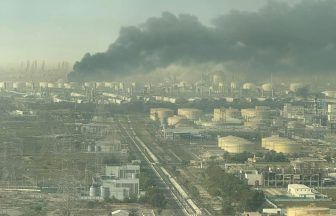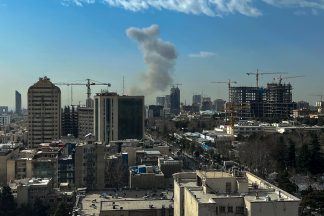Hiring conditions across Scotland deteriorated last month amid an uncertain economic climate, according to new research.
Latest data from the Royal Bank of Scotland Report on Jobs for April found that “sharp and accelerated contractions” were recorded for both permanent and temporary jobs as lingering economic uncertainty had an impact on recruitment plans.
Meanwhile candidate availability fell further, though at softer rates than seen for much of the last two years, amid reports of general skills shortages and an increased reluctance among workers to take on new roles due to the economic climate.
The report found that the number of permanent placements across Scotland fell for the third consecutive month in April.
There was also a drop in temporary placements which fell rapidly at the start of the second quarter, extending the current run of contraction to seven months.
Sebastian Burnside, chief economist at Royal Bank of Scotland, said: “The latest data revealed a further deterioration in the health of the Scottish jobs market in April, as recruiters registered reduced hiring activity for both permanent and temp staff.
“The drop in recruitment reflected current market conditions, as the uncertain economic climate was said to have weighed on firms’ hiring plans.
“Filling roles also remains difficult, as ongoing skill shortages and a further drop in overall candidate availability continue to limit recruiters’ abilities to match people with vacancies.
“Competition for scarce talent exerted further upward pressure on pay.
“Firms were willing to raise their offers in order to attract and secure candidates with the right skillset, with April data signalling sharp increases in both starting salaries and temp hourly wages.”
The report found that availability of permanent staff in Scotland contracted for the twenty-seventh successive month in April.
Recruiters often blamed the subdued economic climate for the lower supply of candidates, the research found.
Short-term candidate availability across Scotland also contracted in April, with the latest reduction linked to general labour shortages, Brexit and an increased reluctance among workers to seek new roles due to worries over job security.
The report said that April data also showed a “solid rise” in the number of permanent vacancies across Scotland, with IT and computing recording the sharpest rise in vacancies followed by accounts and financial.
The April data highlighted a marked rise in salaries awarded to people starting permanent jobs across Scotland, while recruiters also reported a sharp and accelerated rise in temporary wages during the month.
The rate of temporary wage inflation was the fastest seen since the start of 2023, with the latest upturn in pay attributed to the higher cost of living.
This report, compiled by S&P Global, is based on a monthly survey of about 100 recruitment and employment consultants.
Follow STV News on WhatsApp
Scan the QR code on your mobile device for all the latest news from around the country


 iStock
iStock























